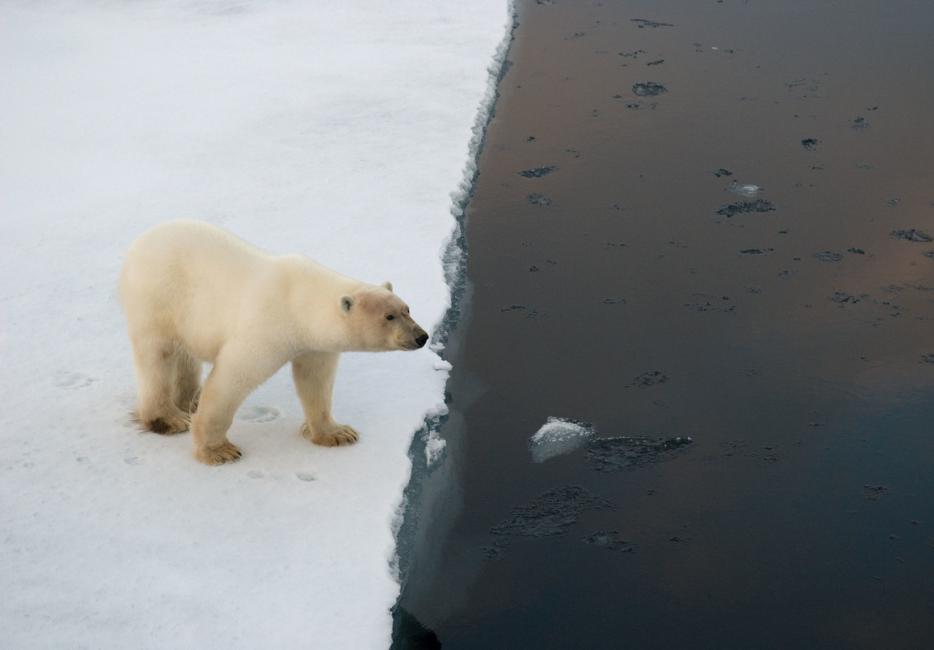
Polar bear: a powerful predator on ice species:
Affected by: Climate change , Extractives , Human wildlife conflict
Polar bears are the planet’s biggest land-based carnivores – although they actually spend most of their lives around water and ice (their Latin name means ‘sea bear’). So they’re at particular risk from global warming, which is melting the Arctic sea ice they depend on.
Polar bears generally live and hunt alone, though they can be quite social too. They mainly eat seals – using their remarkable sense of smell they can detect a seal in the water beneath a metre of compacted snow, and from almost a kilometre away.
Adults are strong swimmers – they can swim for several hours to get from one piece of ice to another. Their thick white coat and a layer of fat keep them warm and camouflaged in their harsh Arctic environment.
Polar bears are classified as vulnerable. There are between 22,000 to 31,000 polar bears left in the wild, but man-made climate change and global warming are making life tough for these impressive, powerful predators—so saving the polar bears could be in our hands. We mustn’t let them down.
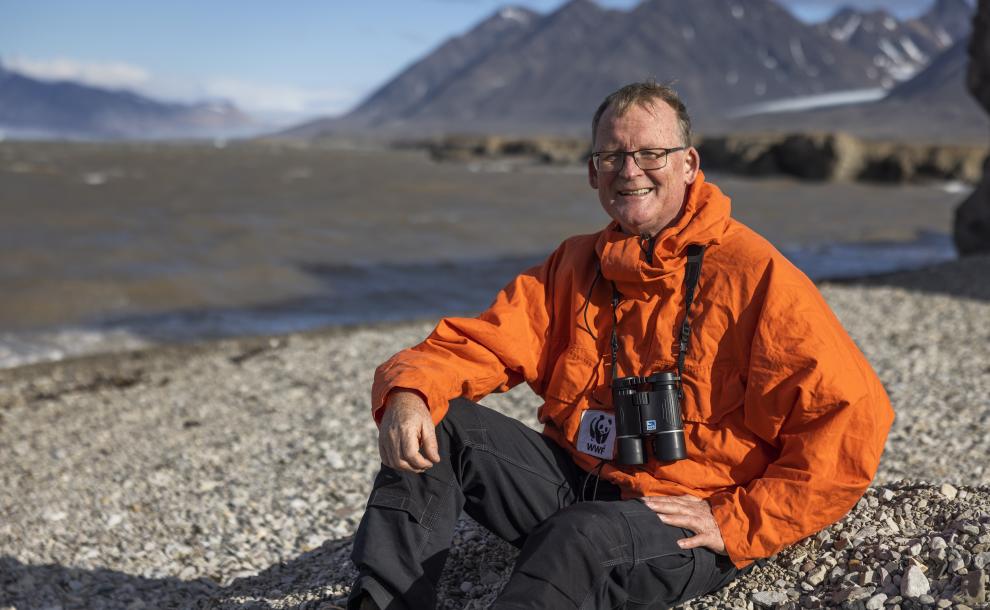
"I will never forget my 'first' polar bear. Today, it still drives me to do all we can to secure a future for these true icons on ice. Working for WWF has given me the amazing opportunity to work alongside leading polar bear scientists and Inuit who have generously shared their wealth of traditional knowledge."
Polar programme manager

Where do polar bears live?
Polar bears live in the frozen Arctic landscape, the northernmost point on the planet. They are not found in Antarctica, even though the North and South poles are both snow-covered, icy-cold environments.
Polar bears range across the Arctic Ocean, in parts of Canada, Alaska, Russia, Greenland and Norway (Svalbard). They can walk on ice or swim long distances to find food or breed – sometimes roaming across vast areas up to 600,000 sq km.
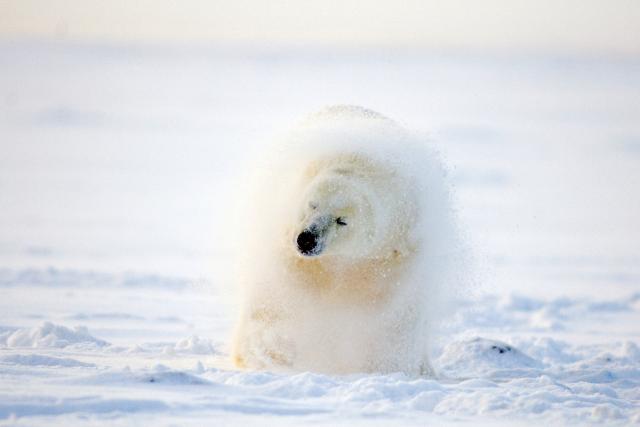
Why polar bears are so important
Polar bears have a strong cultural significance for Arctic people, and beyond, polar bears are top predators in their food web. Which means they play a vital role in the balance of their ecosystem.
By helping protect the polar bear, we’re helping to make sure the Arctic food chain stays healthy, for the benefit of wildlife and people in and beyond the Arctic. The Arctic provides fish for millions of people, including here in the UK.
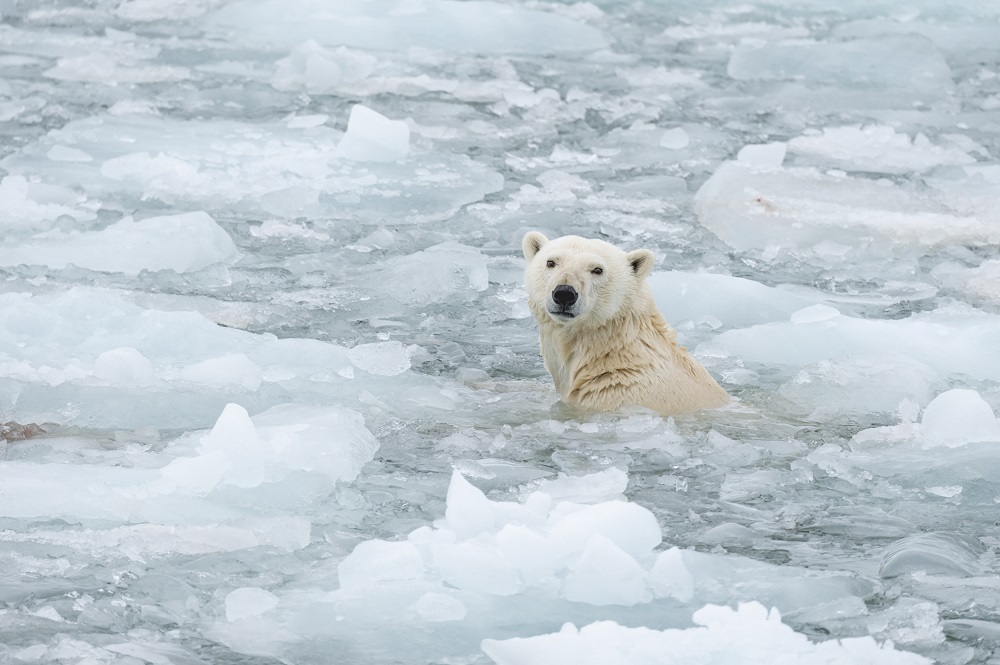
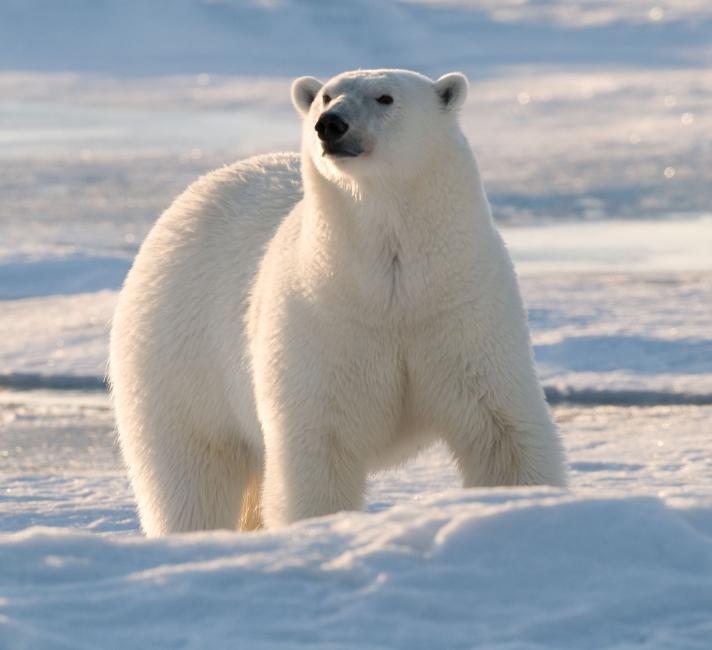
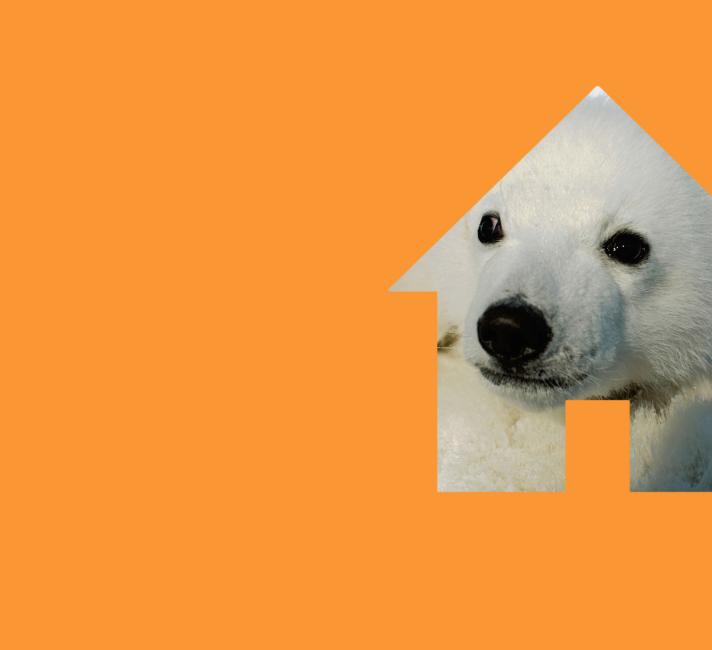
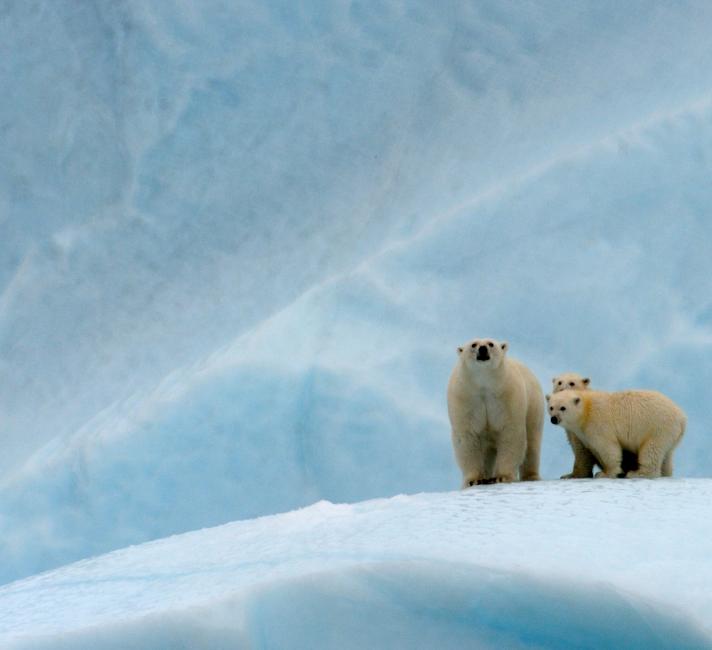
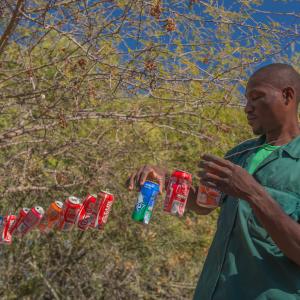
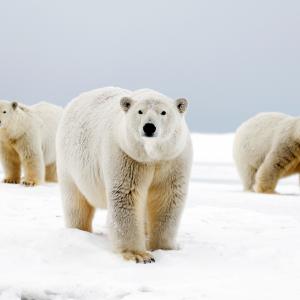 Top 10 facts about polar bears
Top 10 facts about polar bears
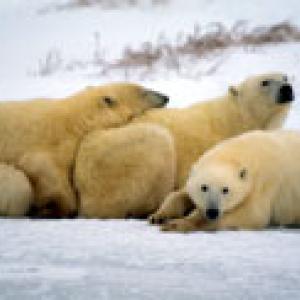 Polar bear quiz
Polar bear quiz
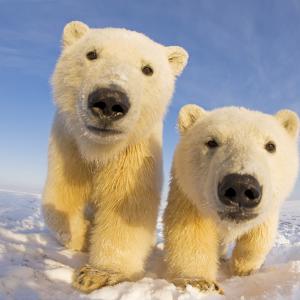 Tracking Polar Bears: Icons of the Ice
Tracking Polar Bears: Icons of the Ice